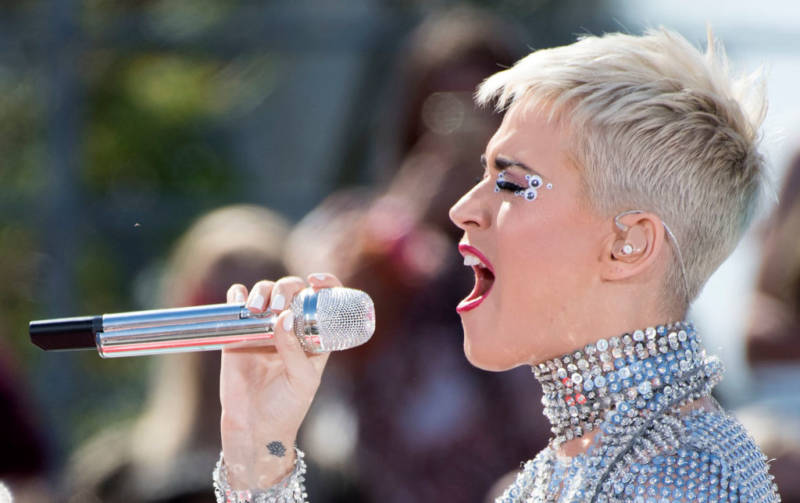Ten years ago, when Britney Spears walked into a salon and shaved her own head, it was seen as the ultimate sign that she'd lost her damn mind. "SHEAR MADNESS" the cover of the New York Post screamed the next day, as the news spread rapidly around the world.
The incident turned head shaving into a kind of pop culture shorthand for having a nervous breakdown. Hair and beauty website, NaturallyCurly, refers to head-shaving as "often a drastic decision driven by emotions," while health.am lists "shaving head or body hair" as #7 on a list of 10 Warning signs of schizophrenia as identified by family members.
Katy Perry has been referencing it as a means to prove her own mental stability since 2010. At the 2017 Grammy's alone, Perry made two separate references to the Britney incident, saying "the only thing left to do is shave my head, which I’m really saving for a public breakdown." Perry also told Ryan Seacrest that night that she was "taking care of [her] mental health" and that she hadn't "shaved [her] head yet." The backlash on Twitter was fast and furious and just two months later, Perry ate her words and, most unexpectedly, shaved most of her hair off -- an incident that was surprisingly under-reported, considering the degree of irony involved.

The online backlash that Perry received, as well as her subsequent hair U-turn in front of a disinterested press, were the first indicators that 2017 might finally be the year that women with shaved heads are no longer considered taboo, threatening, or ugly.
In Western culture, shaved heads are traditionally associated with hyper-masculinity in men (see: the military, prison, skinheads) and a symbol of deviant behavior for women -- whether they shave it themselves, thereby rejecting mainstream beauty standards, or have the cut forced upon them as punishment for being bad.



